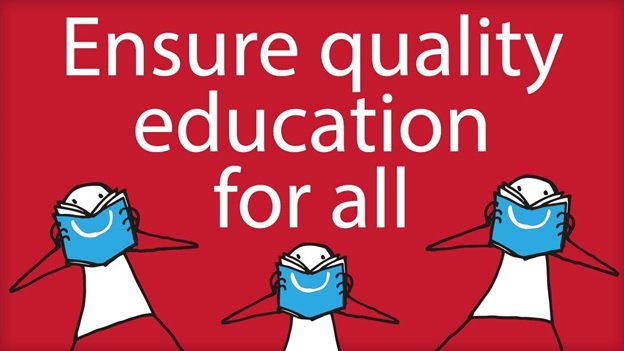
BY TEWODROS KASSA
Recently, the Ethiopian higher education entrance examination result was declared by the Ministry of Education. The result witnessed that there is a tangible change in the amount of students that qualify for the admission at the country’s higher education institutions.
Cheating on exams claimed to be the main challenge behind the sophisticated education system in the country. Different national exams were cancelled in the past due to cheating in exams and breaches in academic integrity conducted with the orchestrated conspiracy of ill intended politicians and activists. The use of mobile devices and internet during examinations exacerbated the challenge of identifying the competent students from the cheaters at the national exams.
Therefore, the Ethiopian government has been exploring various mechanisms to stop cheating at exams. This year, the Ministry of Education has come up with better decisions on the way to ensure quality education.
Minister of Education Prof. Birhanu Nega told local media that in recent years the quality of education has been challenged by multi negative factors and; lack of quality education has been causing the country directly or indirectly to encounter social, political, moral and economic problems.
The Minister urged every agent/citizenry to be part of the school community to improve the quality of education. The active participation of the education sector stakeholders is also fundamental to realize the vision of ensuring quality education in the country.
As to him, problems related with school infrastructure, political interference in the education system, state of teacher training and cheating on national exams are the key challenges of quality education in the country. Thus, the deterioration of quality of education is the main cause of the challenges the country has been recurrently encountering.
“The politics have been leading some local education administrators to support cheating on exams in an organized way. This is why the Ministry has centered activities related with national exam so as to reduce cheating in exams”, he underscored.
Moreover, the Ministry has devised a campaign for education and massive teachers’ retraining as a future direction that will be implemented in the nearest future to improve the quality of education.
Accordingly, the designed campaign is helpful to enhance the involvement of all agents including Diasporas to build school infrastructure and achieve another target that enables to improve quality of education.
Educational experts also applaud the new measures being undertaken by the Ministry of Education. Ensuring quality of education is possible where the government and every segment of the society give special attention to the issue. The major challenges the education sector faced should be resolved immediately so as to cultivate a productive generation.
From now on, the Ministry will administer national exams at higher education institutions and students are strictly forbidden to bring mobile and other electronic devices so as to contain the cheating level being exacerbated through the use of telegram and Facebook. The university exit exam is also sought to create confidence among graduates through making themselves ready to fulfill what are expected from them in their field of study.
On the other hand, President Sahle Work Zewde, during her recent remark on this same issue (education quality in Africa), insisted on the importance of ensuring quality education throughout the African continent. She urged all African countries to reimagine educational models and approaches so as to accelerate the development of the continent.
In her speech at the launching of a report on education in Africa on the margins of the 36th African Union Summit concluded last week, the President said that countries of the African continent need different approaches in terms of quality education.
“To transform the future, we need to rethink our educational models and approaches. We must maintain the vision of education as a public endeavour and a societal project that serves public purposes,” Sahle Work noted.
The continental education strategy for Africa was adopted by African Union Heads of State during the 26th Ordinary Session held in Addis Ababa in 2016. However, the President stated that the continental education, both in terms of quality and accessibility, has remained far behind.
For instance, one out of five African children is out of primary school and almost six in 10 adolescents are out of secondary schools. The proportion of young people not in employment, education or training in sub-Saharan Africa has worsened over the past 10 years. This is for the reason that there has not been renewal of the education system in a manner addressing the root causes of education and social exclusion, the President pointed out.
Therefore, Africa needs to transform its education system to realize the continent’s ambitious development agenda. What is more, she underlined the need for new force of governance that includes all voices and; decolonize the education policy of Africa.
The first edition, “Education in Africa – Placing equity at the heart of policy”, found that while many countries are taking important and significant positive steps towards reaching this goal, too many children are still left behind.
As to the edition, efforts to expand access to and improve the quality of education need to prioritize equity in learning so that the most vulnerable children are placed at the centre of policy decisions and investments. Most education systems experience segregation between the more able children and those who need the extra support. In addition to working around the more visible dimensions of equity (gender, location, poverty), it is important to delve into the invisible barriers that prevent many children from benefiting from the educational experience.
Accordingly, the report looks at six key topics: Early childhood education, primary and secondary school, skills for work, teachers, education facilities, and means of implementation, and suggests that providing quality education for all children will require a complex set of interventions.
The Ethiopian Herald 26 February 2023





